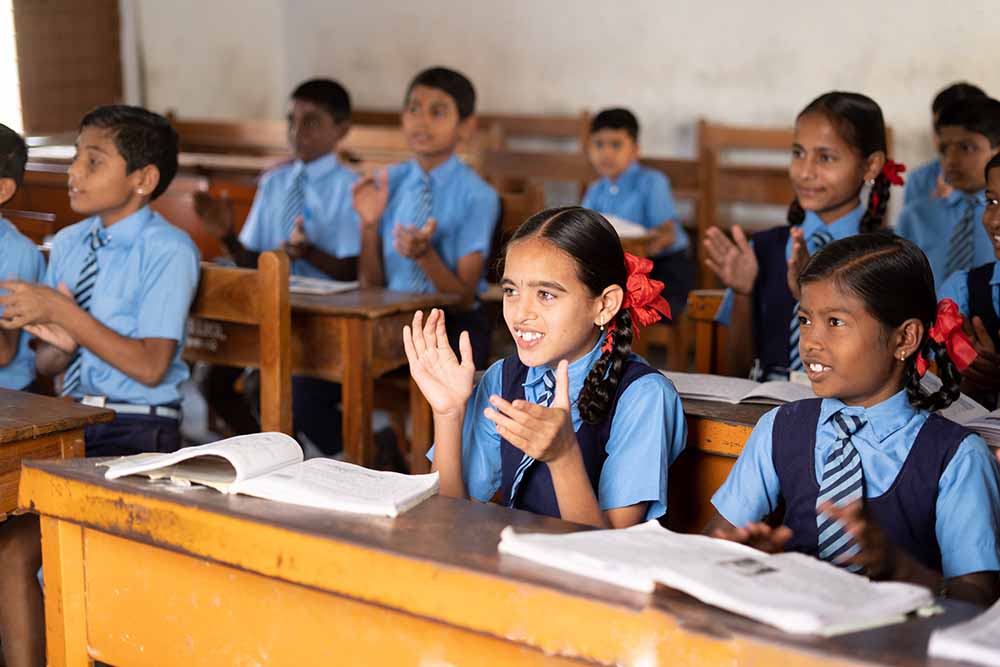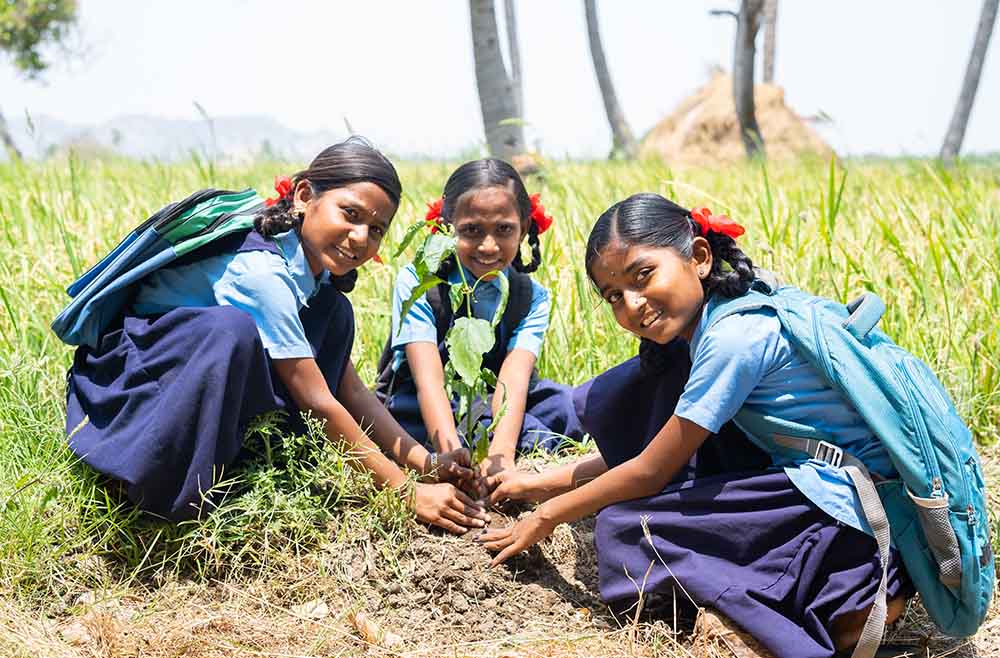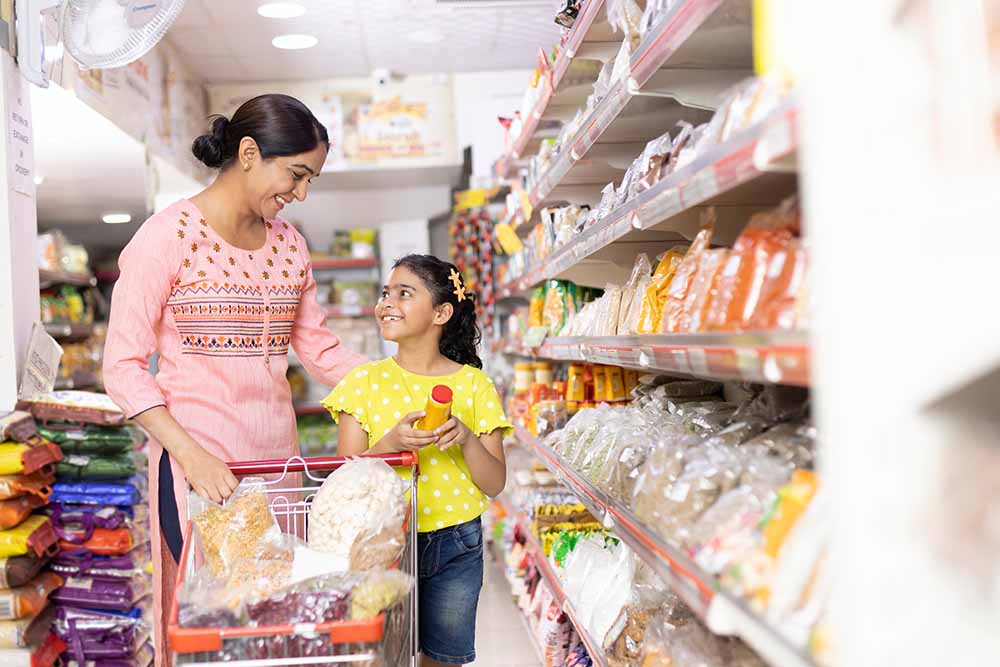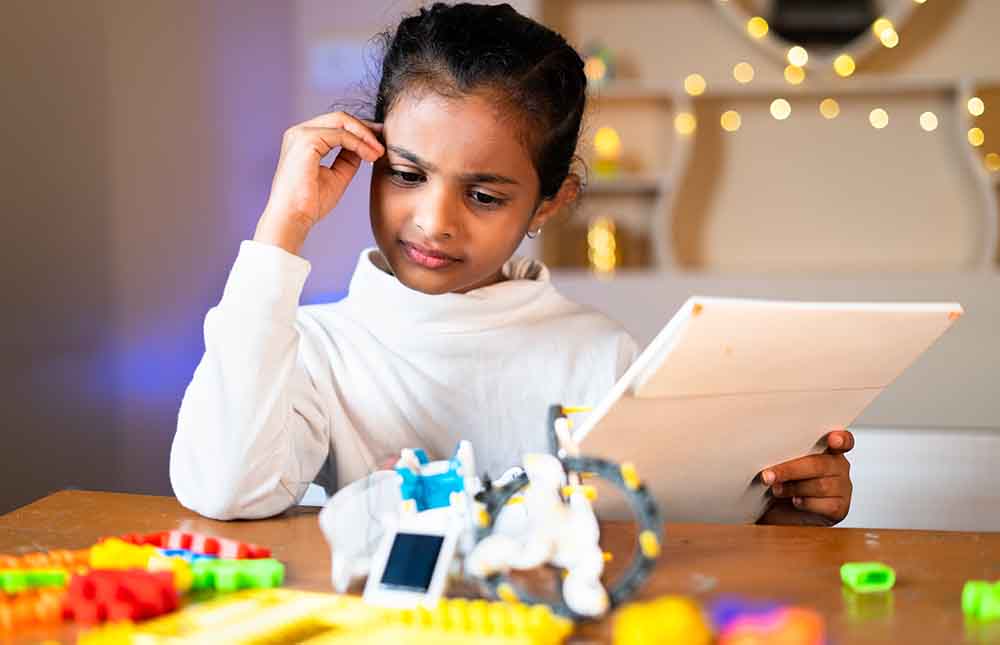In today's world, the importance of sustainability cannot be overstated. With pressing environmental challenges including, but not limited to, the ever-increasing plastic pollution, depleting ocean health, faster melting glaciers, degrading rainforests and exponential depletion of natural resource, it has become crucial to educate the younger generation about sustainability from an early age.
Governments, teachers, researchers, scientists and activists all agree that we should start teaching sustainability right from kindergarten. Sustainability needs to become an essential part of the cultural upbringing for the next generation.
Her Circle speak to Climate Change Mitigation & Adaptation Practitioner, Neha Sharma, who recommends strategies for effectively teaching sustainability to children and inculcating a sustainable mindset.
A Whole School and Wider Community Approach
Sustainability is not just about acquiring knowledge; it requires collective efforts. To effectively teach sustainability, schools need to adopt a holistic approach that involves students, teachers, school leaders and the wider community. Teachers and school leaders should lead by example, practicing sustainable behaviours in their daily lives and integrating sustainability initiatives into school activities.
Additionally, schools should foster a culture of support and understanding, acknowledging that sustainability may not be accessible to everyone due to various constraints. Rather than penalising individuals who face challenges in adopting sustainable practices, schools can seek alternative solutions, such as carpooling or bike-sharing programs. By involving parents and guardians in sustainability initiatives, the lessons children learn at school can be reinforced and practiced at home as well, resulting in a stronger impact.

Integrating Solutions into Lessons
Instead of just talking about problems, let's show kids how they can be part of the solution. For example, we can teach them about supporting ethical companies or advocating for things like bike paths to reduce car traffic.
By equipping children with tangible actions they can take, they develop a sense of agency and hopefulness, fostering a greater commitment to creating a sustainable future. In this consumption-centric culture, where the entire population has shifted from a need-based approach to a want- based one, it has become pressing for educational institutions to help break the cynical cycle of over-consumption and instant gratification. Encouraging responsible consumption, waste reduction and participation in community initiatives helps children understand their ability to effect change.
Cultivating a Positive Relationship with the Environment
Developing a personal connection with nature is essential for nurturing sustainable values in children. By exposing them to the natural world, either through outdoor activities or field trips to national parks, children can appreciate the beauty and complexity of ecosystems. School’s initiatives, such as setting up nature areas or building bug hotels (to provide shelter to insects), can enhance their connection and curiosity. Kids should be encouraged to adopt a tree in their vicinity, starting with a potted plant inside their homes.

Practical Learning: Grocery Store Visits and Recycling at Home
Engaging children in practical experiences reinforces sustainable learning. Taking children to the grocery store and involving them in selecting eco-friendly products creates awareness of the importance of locally-produced and organic items. Implementing a recycling system at home and discussing the significance of waste reduction help children grasp the impact of their actions on the environment. Creating cognisance for waste reduction and segregation, and reinforcing its importance from this nascent age will enable society to manage waste responsibly and thus create future climate leaders in every household.

Exploring Sustainable Farms and Gardens
Visiting local sustainable farms enables children to understand the connection between food production, sustainability and environmental preservation. Planting and nurturing a vegetable garden at school or home offers hands-on experience in sustainable agriculture and encourages a deeper appreciation for the food we consume.
Upcycling and Creative Projects
Promote the idea of upcycling to teach children about the value of resourcefulness and minimising waste. They can taught to turn plastic bottles into bird feeders or tin cans into lanterns. These projects teach children that small actions can make a significant positive impact.
Often, we make the mistake of assuming that children have limited power and capability, but what we forget is that they are the future of this planet and the existing resources left for their survival are depleting with time. Instilling environmental thought leadership doesn’t have to wait for them to turn 18, because we start consuming as soon as we are conceived. Mother Nature stands a chance to benefit from the ownership of these young buds and we must make the most of every opportunity to trust the next generation.
